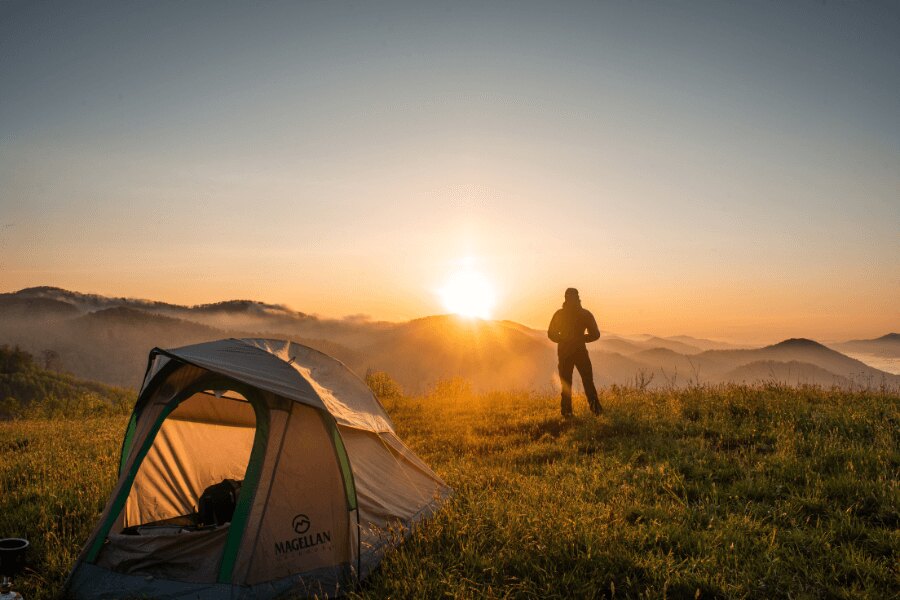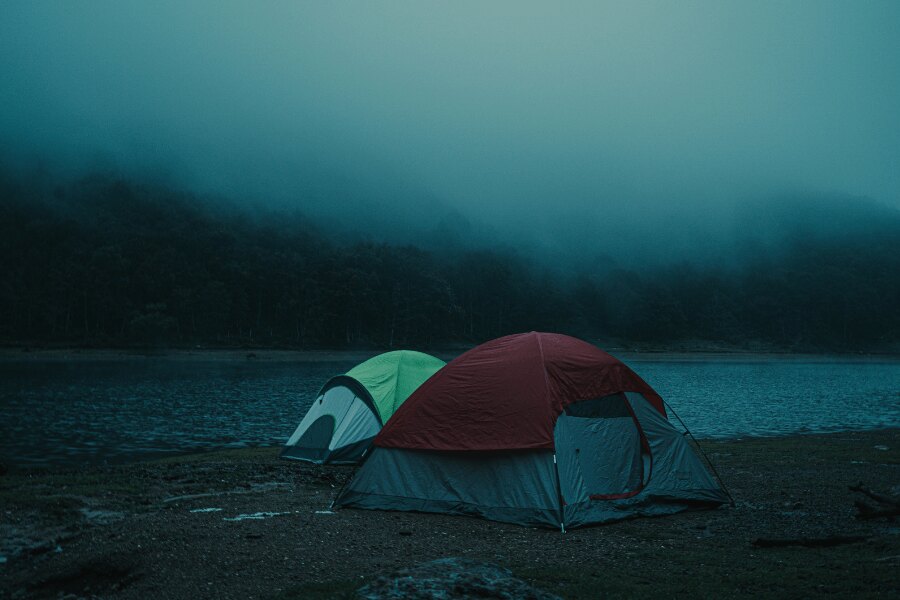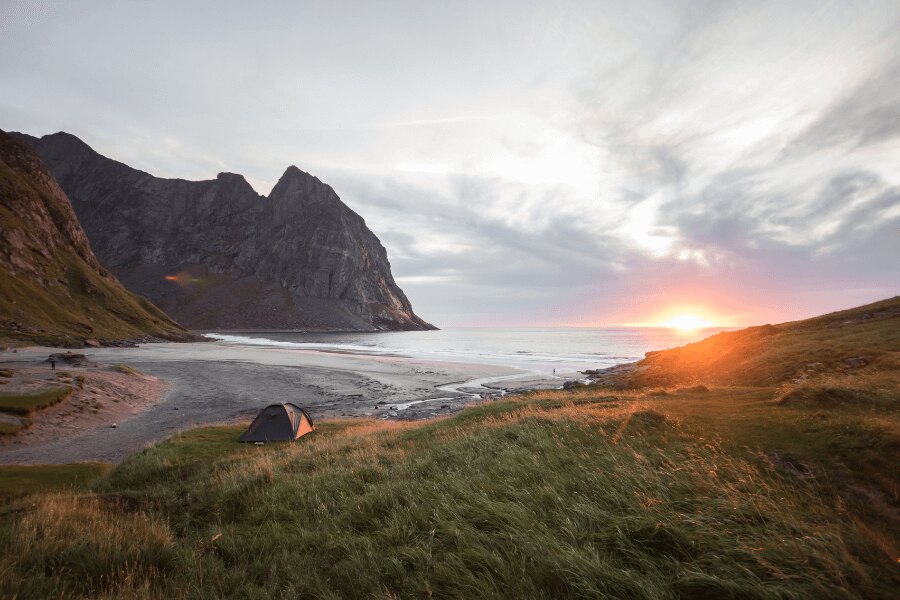How to choose a place to spend the night outdoors?
Floods, strong winds, falling rocks or uninvited visitors? Many of us can still be troubled by nature. All you have to do is follow a few rules that will ensure an undisturbed night outdoors. Join us for some practical advice that will save you the trouble.
Sleeping or camping?
Before we start looking for a place, it is important to understand how sleeping outdoors will look like. Are you going for a one overnight stay, or are you planning to stay longer and settle in properly?
Sleeping
When bivouacking, you can make yourself a bed almost anywhere. The most important thing is that you leave no traces behind when you leave. You can sleep in a sleeping bag, hammock or small tent on hiking trails, even in protected areas or reserves. National parks are an exception. Be very careful when starting a fire, as this can cause you a lot of trouble in the nature.

You shouldn't leave any traces after spending the night outdoors
Camping
Camping is a multi-day stay in a place where you build a fireplace, dig a latrine or pitch a larger tent. In short, it is a place that you make as comfortable and as adaptable as possible to your needs. Such camping is only possible on designated sites. Moreover, you can hardly do without the consent of the landowner. It is also worth considering so-called emergency sites, which you can use free of charge and avoid any inconvenience.
Now that we've explained the difference between sleeping and camping, we can finally start looking for the perfect place to spend the night.
Is it worth using modern technology?
Today, you can find a number of apps or websites on the internet that will help you choose the right place. Very usefull is for example a website bivakuj.cz, where, in addition to the tried-and-tested places, you'll also find other hints and tips.
Modern technology, specifically interactive maps, can also help you choose a location. On the map, you can immediately see if there is a river flowing past your potential campsite or if there are any unpleasant traps in the surrounding area that would be good to know about in advance.
Podle čeho vybírat?
Choosing the right spot can be a bit of a challenge outdoors. But it's important to really take care when choosing one, otherwise a pleasant stay can turn into a bad dream rather quickly.
1. It takes time…
Allow plenty of time to choose your location. There's nothing worse than taking a hasty trip to a clearing and only after dark finding sharp edges of rocks pushing into your back or gradually sinking into soft ground.
2. Safety first
Scout the area around your potential sleeping spot and carefully check that there are no sinkholes, open wells or other hazards nearby. Of course, sleeping under rock overhangs is also risky, where there is a risk of larger rocks breaking off or landslides.

Around rivers and streams, consider whether they are in danger of overflowing and how this would affect you.
Also keep in mind that it is not safe to sleep under tall abandoned trees in the event of a storm. Also avoid mountain ridges and higher grounds from which you cannot quickly leave in an emergency.
You should also be very careful in open fields or thickets where you are not visible at first sight. Especially during the harvest season, sleeping in the field is an unnecessary risk.
3. Anticipate
When camping or bivouacking, it pays more than ever to anticipate future developments. Did you know it's forecast to rain heavily? Then it's important to avoid rivers and streams. The landscape near the riverbeds may look romantic and inviting, but you are in great danger if the river starts overflowing. At the best case, you will leave the place soaked and grumpy. For the same reason, it's better to avoid the valleys and look for a place a few metres higher up.
4. Avoid the bark beetles
Unfortunately, bark beetle is on the rise again in the Czech forests and is infesting more and more areas. The infested trees are fragile and break easily even in light winds. So if you enter an area where the trees seem drier, it is better to look elsewhere for a suitable spot.
5. Uninvited visitors
In case of uninvited visitors, we recommend choosing a remote location that is as far away from towns or villages as possible. This will reduce the risk of a prankster or thief visiting you while you are staying overnight.
Also avoid feedlots and feeding areas where wild pigs and other hungry animals may visit you. Sleeping near anthills is also unpleasant. The ants don't miss anything and you can be sure that they will come to your place for a midnight snack.
6. Always have a plan B
It's always a good idea to have another place nearby to move to in case of trouble. There are many things you simply cannot control in nature. You may have chosen a place where the animals gather at night, or you may have made yourself comfortable in a wasp's nest. Unfortunately, this happens and finding a new spot at night can be a real pain.

Always have a plan B ready.
And what should such a place ideally look like?
We've already talked about what to look out for when choosing a place. Unfortunately, you won't always come across a spot outdoors that will meet all your requirements perfectly. But you can at least try.
So ideally you're looking for a place:
- Where you will have enough resources (water, wood).
- Which will be at least a few metres above the water level or valley.
- Without a steep slope with the flattest possible surface.
- Which is not completely open - it is bordered by rocks, trees.
- Where you are not in immediate danger.
Choosing a place can be a hassle, but we think sleeping outdoors is definitely worth the effort. For many adventurers, there's nothing better than a night sky full of stars and a beautiful landscape that draws you into a whole other world.
Readers are further interested











































































































































